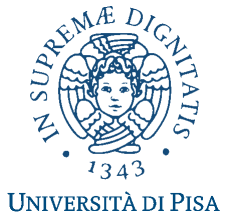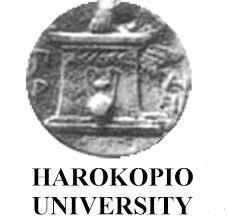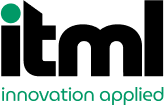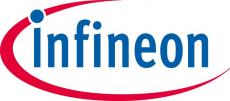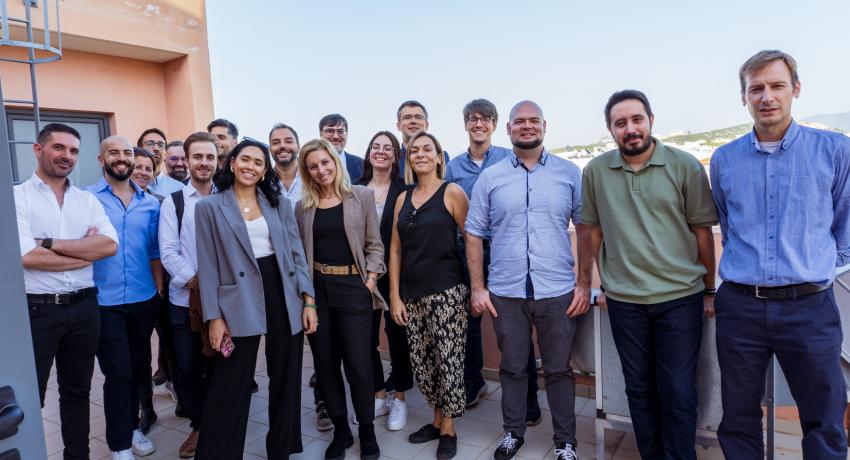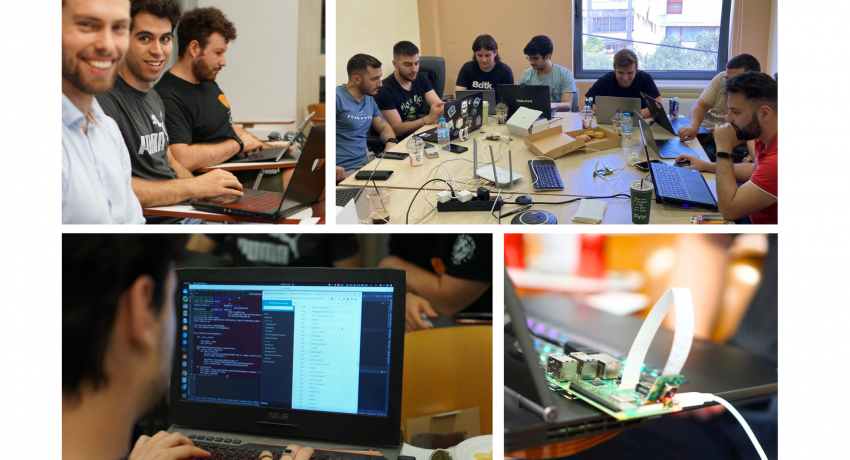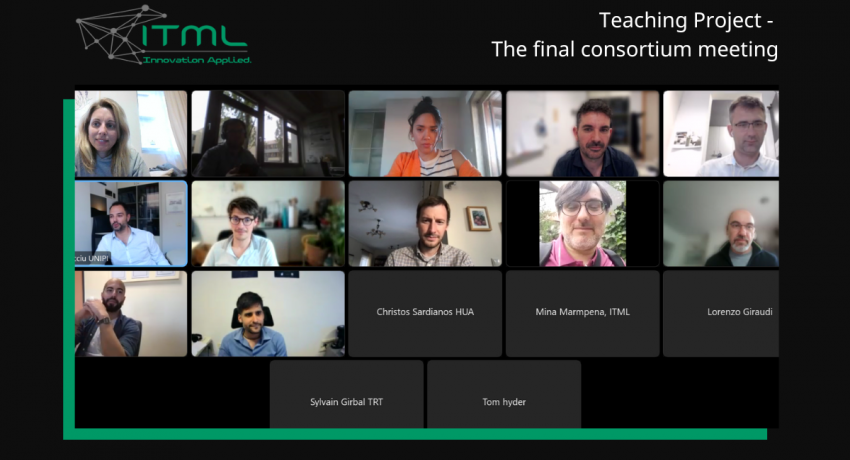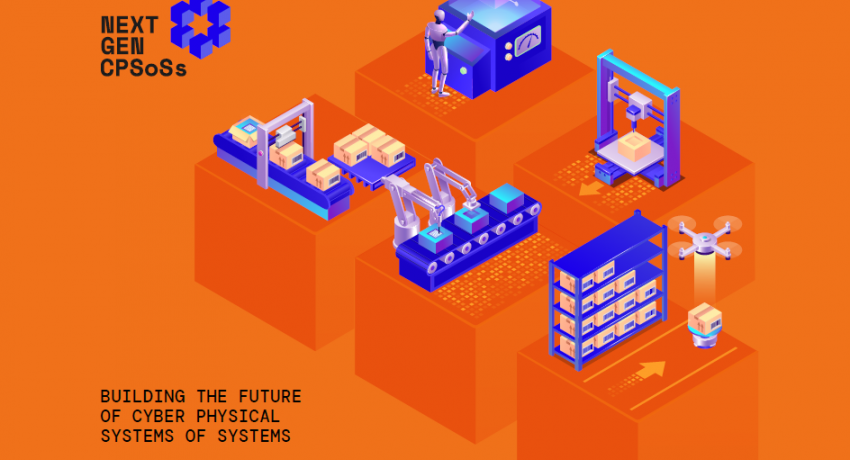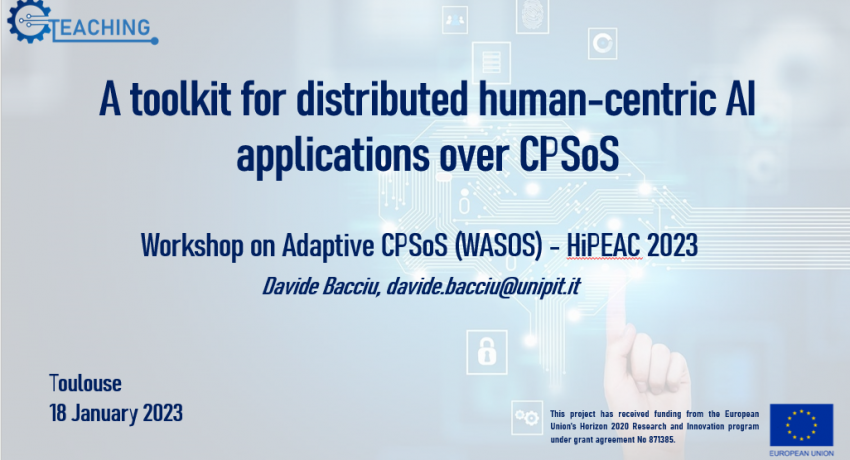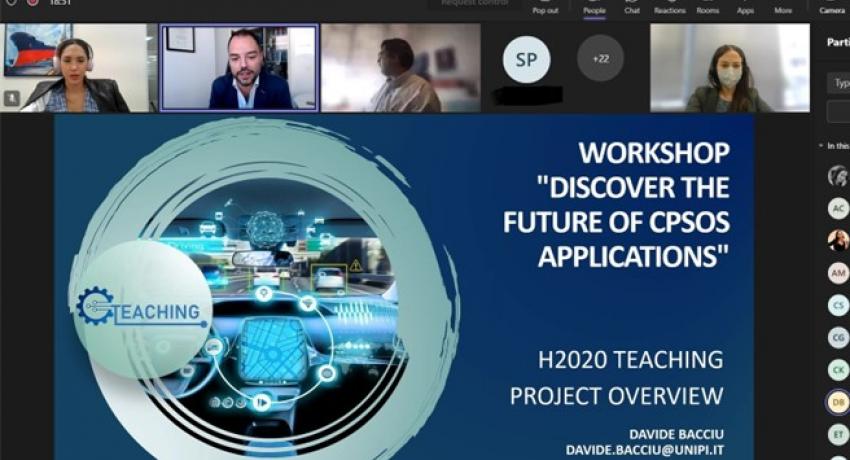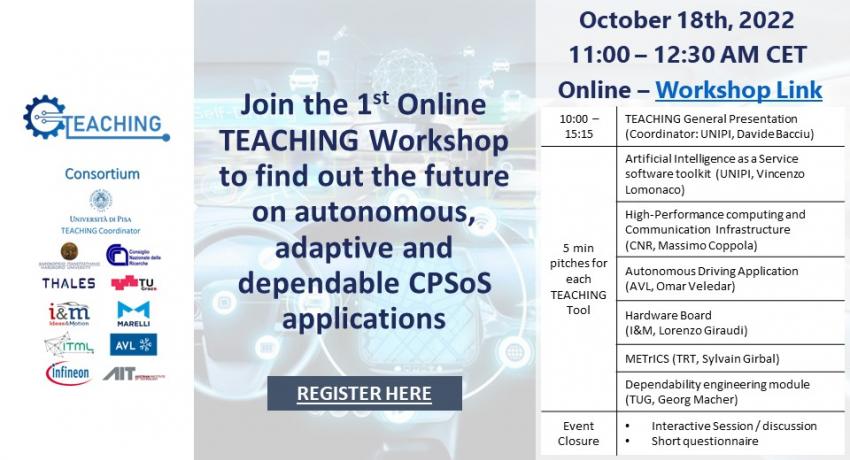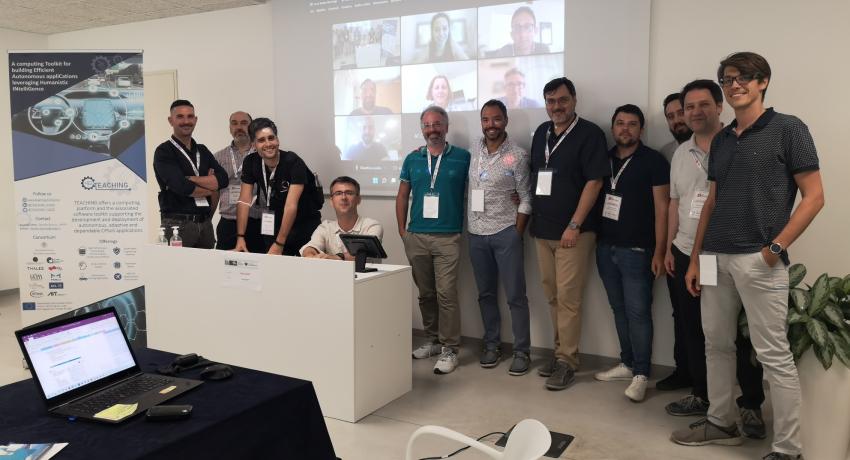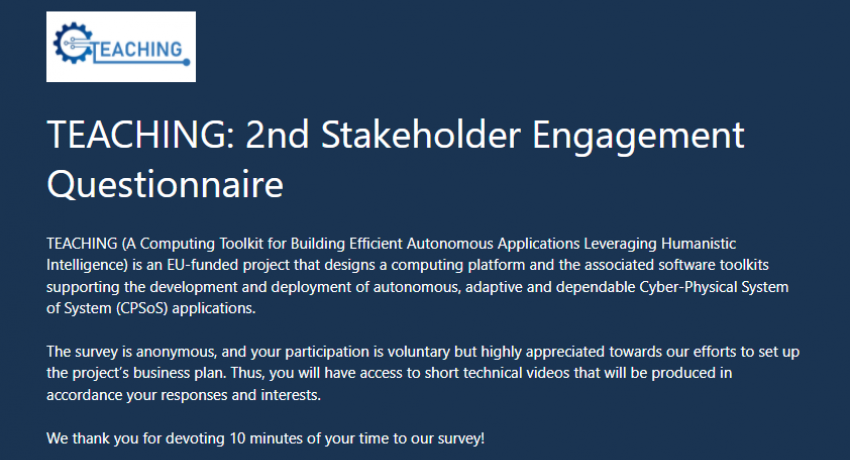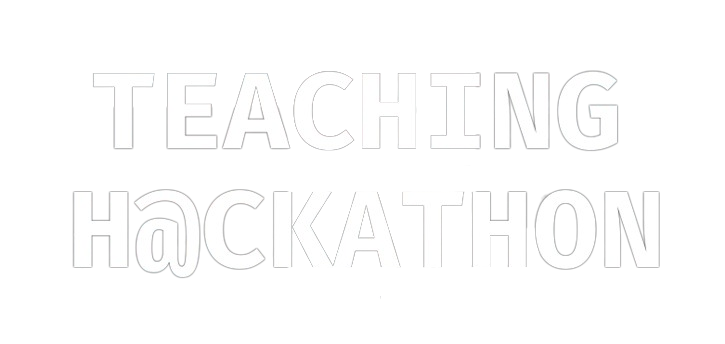TEACHING at a Glance
The realization of the TEACHING vision revolves around four main concepts:
The creation of a distributed edge-oriented and federated computational environment that seamlessly integrates heterogeneous resources comprising specialized edge devices, general purpose nodes and cloud resources. A core concept is the exploitation of edge devices with specialized hardware support to run AI, cybersecurity and dependability components of the autonomous application.
The development of methods and tools that support runtime dependability assurance of CPSoS. To that aim also systematic engineering processes will be developed to be used for design of conventional and AI-based runtime adaptive systems, applied both in the cloud and at the edge in order to ensure continuous CPSoS assurance at runtime and throughout the software life cycle (including AI approaches tailored towards a cognitive security framework).
The realization of software-level abstraction of the computing system to allow an easy and coordinated deployment of the different application components on the most adequate CPSoS resources. This concept also involves the orchestration of application components to optimize resource efficiency and energy consumption and meet the dependability requirements of the application.
The leveraging of a synergistic human-CPSoS cooperation in the spirit of Humanistic Intelligence, exploiting AI methodologies and continuous monitoring of the human physiological, emotional and cognitive (PEC) state to enable applications with unprecedented levels of autonomy and flexibility, while retaining the dependability requested by any safety-critical system operating with a human in the loop.
TEACHING Objectives
- Consolidation of international and European links, raising awareness, collaboration with standardizations bodies and ensuring the transferability of project’s results
Evaluation of the computing, adaptation and dependability functionalities of the CPSoS on safety-critical industrial applications through autonomous driving and aviation demonstration environments…
Development of distributed AI-as-a-service toolkit enabling human-driven adaptive applications in CPSoS
Provision of High-Level Parallel Programming Framework targeting Heterogeneous Computing Resources for AI-based Applications on CPSoS
Establishment of Smart communication paradigms, architectures, and technologies for real-time and energy-aware information exchange on CPSoS
Development of tools for dependable and secure CPSoS
Development of architectural patterns and dependability-engineering framework for runtime adaptive CPSoS
Definition of a CPSoS computing system supporting a cross-platform Cloud-Edge continuum to ease the exploitation of resources, shrink transmission costs and reduce latency between the data and the…
TEACHING Work Packages
TEACHING Experimentation
Partners
News
Contact us
Follow us on YouTube



